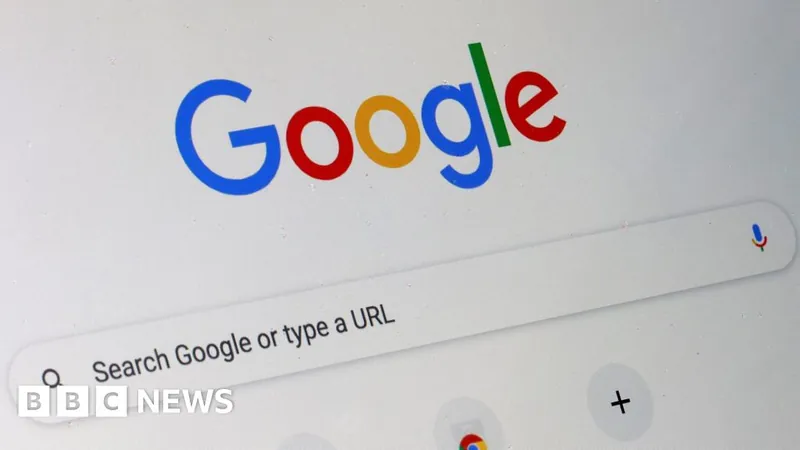
Is Google on the Edge of a Major Breakup? Here’s What You Need to Know!
2024-10-09
Author: Jia
In a dramatic turn of events, the U.S. government is contemplating a monumental breakup of Google, the tech titan that has become synonymous with online searches. This potential enforcement comes in the wake of a blistering accusation from the Department of Justice (DOJ), which claims that Google has been wreaking "pernicious harms" upon the American public.
Following a historic court ruling earlier this year, which found Google guilty of stifling competition in the online search arena, the DOJ has initiated discussions around possible remedies meant to curb Google’s market dominance. If implemented, these measures could herald the largest regulatory overhaul in the tech industry's history.
Google's response to these proposed changes has been nothing short of fierce. Company officials have labeled the DOJ's plans as "radical" and "sweeping," suggesting they could end up hurting consumers, businesses, and developers alike. Currently, Google commands a staggering 90% share of the global search market, raising concerns about the implications of any interventions.
The DOJ alleges that Google has been leveraging its suite of products—like the Chrome browser and Android operating system—to effectively direct users to its search engine, thereby enhancing its revenue through advertising. They argue that Google's "unlawful conduct" over the past decade has thwarted potential competitors from entering the search marketplace, allowing the company to charge exorbitant prices for advertisements while simultaneously degrading quality.
As part of the ongoing legal process, the DOJ aims to present a comprehensive set of proposals by November 20, with Google expected to counter these with its own suggestions by December 20. In a recent blog post, Google’s Vice President of Regulatory Affairs, Lee-Anne Mulholland, has accused the government of "overreach." She warned that if Google's ancillary products are separated from its core search operations, it could lead to increased costs for consumers as these products would need to generate independent revenue.
Moreover, Mulholland pointed out that the company pays device manufacturers like Apple and Samsung hefty sums to remain the default search engine on their devices, essentially subsidizing their products. Removing this financial arrangement, she argued, would inevitably lead to higher prices for end-users.
On the flip side, Google has attempted to paint the online advertising sector as a competitive landscape, referencing a Wall Street Journal report that notes a shift in searching habits towards platforms like TikTok and Amazon. Despite these claims, Google continues to dominate the ad search market, holding over 50% market share.
Experts are questioning whether the DOJ's actions will effectively diminish Google's stronghold on the search market. Xiaofeng Wang, an analyst at Forrester, states that while regulatory changes could theoretically create opportunities for smaller players to flourish, genuine technological innovations and strategic consumer engagement would also be crucial for their success.
The ongoing litigation against Google may set a crucial precedent, potentially opening the floodgates for similar actions against other tech behemoths like Meta Platforms, Amazon, and Apple, all of which are currently facing allegations of maintaining monopolistic practices.
As we await the developments in this landmark case, one thing is clear: the outcome could reshape the digital landscape and redefine the way we engage with technology for years to come. Stay tuned for updates on this unfolding story!

 Brasil (PT)
Brasil (PT)
 Canada (EN)
Canada (EN)
 Chile (ES)
Chile (ES)
 España (ES)
España (ES)
 France (FR)
France (FR)
 Hong Kong (EN)
Hong Kong (EN)
 Italia (IT)
Italia (IT)
 日本 (JA)
日本 (JA)
 Magyarország (HU)
Magyarország (HU)
 Norge (NO)
Norge (NO)
 Polska (PL)
Polska (PL)
 Schweiz (DE)
Schweiz (DE)
 Singapore (EN)
Singapore (EN)
 Sverige (SV)
Sverige (SV)
 Suomi (FI)
Suomi (FI)
 Türkiye (TR)
Türkiye (TR)